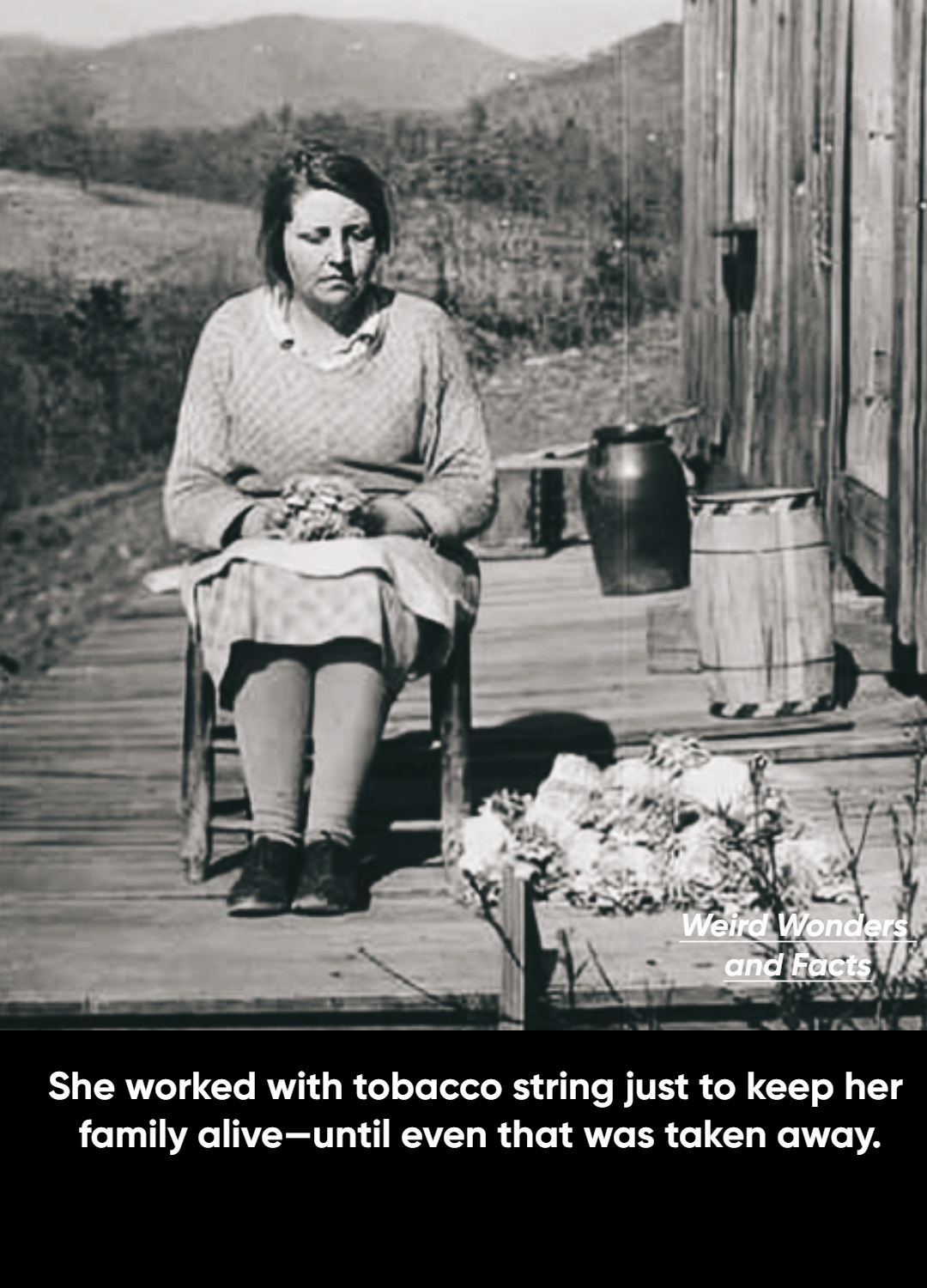The Quiet Strength of May Brown
In the rugged hills of Wilkes County, North Carolina, the year was 1939—and a woman named Miss May Brown lived a life of silent despair. At 30 years old, she bore no official title, earned no applause, and held no dreams of escape. What she had instead was the weighty duty of caring for her elderly parents in a world that offered nothing in return.

Her mother lay bedridden. Her father, worn down by age and illness. The family survived on a threadbare income: an old-age pension of just $7 a month and about $2 more from hand-weaving tobacco pouches—a task May had done with patience and quiet pride for over 15 years. It wasn’t much, but it was theirs. Until it wasn’t. Like so many fragile lifelines in the era of the Great Depression, that small job vanished. The pouch-weaving ended. And with it, one of their last means of survival.
They lived in a one-room house on rented land—no electricity, no running water, no bathroom. Rent was paid in kind: corn, potatoes, and whatever else they could coax from the dirt. But it was never enough. May couldn’t take other work; she was the full-time caregiver for both parents. Even basics like flour had to be bought on credit from a local storekeeper who knew all too well how close they were to the edge.
Yet May never begged. She never sought pity. All she wanted was the chance to keep going. To keep working. To keep her family warm and fed, no matter how humble the means. Her story is a snapshot of thousands like her—women who stood firm on the frontlines, shouldering poverty and duty without recognition.
The Great Depression didn’t just shatter banks—it tested the quiet resilience of people like May Brown. And though the world may have passed her by, we remember her strength.
#RuralHistory #UnsungHeroes
Source: Weird Wonders and Facts
